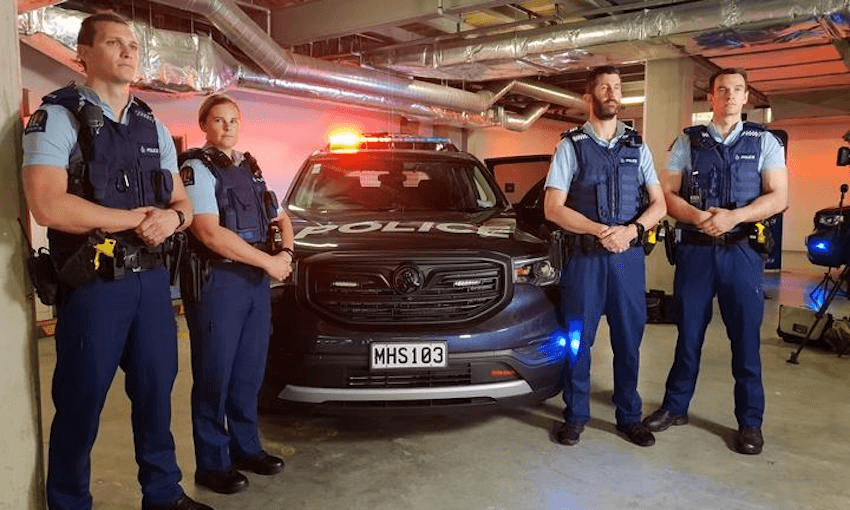Highly trained, armed police are a necessary tool in emergency situations, but roving teams eager to find work could be a recipe for disaster, writes investigator and former police officer Tim McKinnel for RNZ.
Police announced yesterday they are to introduce a trial of Armed Response Teams (ARTs) in Auckland, Waikato and Christchurch, euphemistically describing their role as one to “support police’s tactical capabilities”.
Commissioner Mike Bush says the teams are being introduced because the events of 15 March in Christchurch demonstrate that the “operating environment has changed”, drawing a direct link between the atrocities in Christchurch and the introduction of the ARTs.
Globally, terrorism has a history of eliciting oppressive opportunistic responses from governments, so we ought to be sceptical. By any measure, the police response to the attack in Christchurch was impressive; a heavily armed and mobile offender was apprehended within minutes of his escape from the crime scenes.
Police described their own response to the attack as incredibly fast, and I think that is fair. The controlled and proportional manner in which the alleged gunman was apprehended was heroic, and rightly led to bravery awards for the officers involved.
In many ways, I think the response to 15 March undermines police’s link between the attacks and the introduction of ARTs. It could be that the events of the Christchurch attack laid bare vulnerabilities with current tactical response capabilities, but that’s not a claim I’ve seen Commissioner Bush or any officer make since 15 March.
There are good reasons for our communities to resist an increased militarising of police in this country. The most fundamental of those is the racially biased way policing occurs. The data supporting racial bias in policing, and criminal justice in general, in New Zealand is compelling.
Commissioner Bush, to his credit, has acknowledged the existence of this bias. In this context it seems reasonable to assume there is a grave risk that the ARTs will be disproportionately deployed against Maori and Pasifika communities.
As it stands, 66% of all New Zealanders shot (fatal and non-fatal) in the 10 years from January 2009 to January 2019 were Māori or Pasifika – a shameful statistic in a country that claims to be egalitarian. It seems inevitable that ARTs would further exacerbate this phenomenon, without some clearly prescribed intervention or mitigation strategies.
Aside from racial bias, there are other reasons to fear further arming of police. In the press release making the case for ARTs, Commissioner Bush claimed that these types of armed units are a standard feature across international policing jurisdictions. Maybe so, but international evidence cuts both ways.
Research finds units often used against racial minorities
Data from a recent Princeton University study painted a damning picture of the effects of militarisation of civilian police forces. The study found that ART-type units tended to be most often deployed in non-emergency situations, like search warrants, and failed to improve community or officer safety.
Commissioner Bush frankly acknowledges that ARTs will be used when executing search warrants in New Zealand. Search warrants are generally planned, timed operations. The Operation 8 terror raids and the paramilitary operation on the Dotcom family home are evidence of the police’s ability to arm themselves for search warrants, occasionally overzealously.
The same Princeton study also found that ART-type units were disproportionately deployed against racial minorities. A familiar international trend, it seems.
For our communities to be satisfied of the need and value of these roving ARTs, there ought to be evidence of a gap in current tactical options framework.
As far as I can see, the case has not been made, at least not publicly. Doubtless, highly trained, armed police are a necessary tool in violent and emergency situations. But roving teams eager to find work and prove their worth could be a recipe for trouble, particularly for Māori and Pasifika.
